Tehran Fire Department To Announce List Of 129 Unsafe Buildings
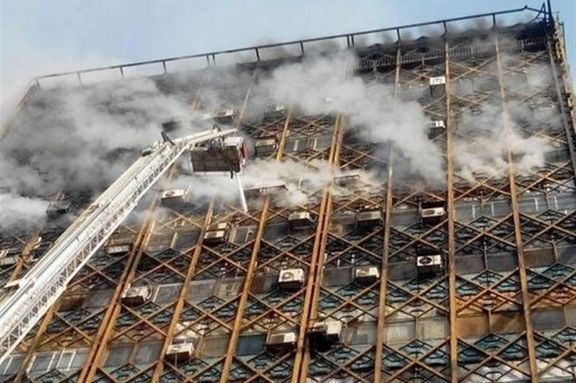
Tehran Fire Department says it will announce the list of 129 unsafe buildings in the capital, stating that there are more than three thousand cases of such buildings in the capital.

Tehran Fire Department says it will announce the list of 129 unsafe buildings in the capital, stating that there are more than three thousand cases of such buildings in the capital.
Ghodratollah Mohammadi, the caretaker of Tehran Fire Department, said on Sunday that “When we know that a large number of our citizens are in unsafe buildings every day, we should not be afraid to publish the names."
"In coordination with the prosecutor's office, we will publish the list of 129 buildings," he added.
He made the remarks as sporadic protests continued in Iran on Saturday despite a heavy presence of security forces and minimal information available with lack of internet access.
Thousands of security forces, some dispatched to Khuzestan in recent days, were present in Abadan where the building incident took place and in other cities.
The number of victims of the collapse of the Abadan Metropolis building reached 29 as new bodies are being discovered under the rubble.
The people of Shahinshahr in the central Esfahan province and Bandar Abbas in the southern province of Hormozgan also held protest rallies to show their solidarity with the people of Abadan, whose mourning ceremonies for the victims of the collapsed ten-story Metropol twin towers have turned into anti-government protests since Wednesday.
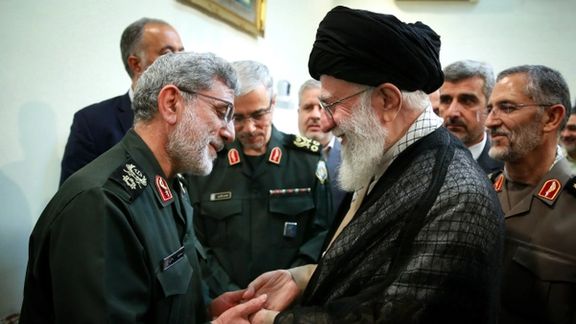
Fars news website in Iran affiliated with the IRGC has published an article profiling several Israeli businesspeople, using thinly veiled threatening language.
The article published on Sunday and credited to the “International Desk” of the website claims it obtained “internal information” about these individuals who are “experts in military, security, cyber and technology fields of the Zionist regime.” The website also claims that the individuals were involved in “sabotage in Islamic countries and assassination of resistance activists.”
The artice is headlined, "Zionists who have to live in hiding".
It goes on to say that “The rest of the information includes very precise details about their family members, photos and videos, home and work addresses, and their commuting routes, as well as telephone numbers…”
However, the information published about each person is very brief and can be easily obtained from public sources.
The first person on the list is retired Major General of the Israeli Defense Forces, Amos Malka (1972-2002), who was director of IDF Intelligence and commander of ground forces during his military career.
Fars used a couple of publicly available photos of Malka, who for the past 20 years has been a successful businessman. He is currently involved with several companies as partner or chairman of the board, including Windare Ventures, Aitech, supplying rugged computer systems, and co-founder of Spire Security Solutions, a security and intelligence company.
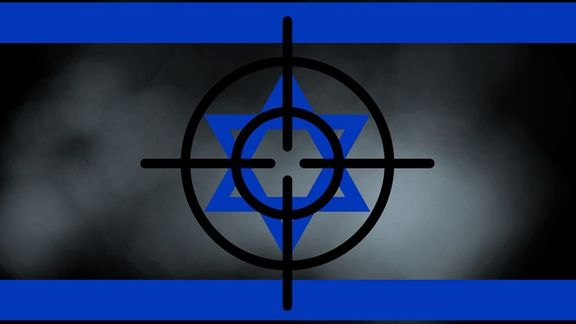
Amir Levinthal is another individual named by Fars, who is the founder of Cylus, a rail cybersecurity company. He is also a former military officer and Fars says he served in IDF intelligence.
The article also profiles Gal Genut, CEO of cyber intelligence company Analiza, who served as director of Unit 8200 of the Israeli Intelligence Corps. Fars says that Genut is also involved in IntSights and says that both companies are contractors for the Israeli government and its intelligence service the Mossad.
Next, the Revolutionary Guard’s mouthpiece profiles Inbal Arieli, as one of 100 most influential persons “in new technologies of the temporary Zionist regime and one of the most well-known Zionist job creators.” It adds that Arieli was also a part of Unit 8200 and “believes that special unit operational tactics should be also used in the business world.”
Amit Meltzer is another Israeli cyber specialist Fars mentions and says he is an expert in cyber defense technologies.
The Fars article comes at a time when the Islamic Republic seems exposed and vulnerable to Israeli operations inside the country. Numerous acts of sabotage and assassination have occurred in Iran since July 2020. Sensitive nuclear, military and economic targets have been hit, although Israel has never confirmed or denied involvement.
The last incident occurred on May 22, when an operative of the Revolutionary Guard Qods (Quds) Force was gunned down outside his home in Tehran in broad daylight. A security source later told Iran International that the IRGC colonel Hssan Sayyad-Khodaei was responsible for recruiting operatives for terror attacks against Israelis.
Iranian officials, shaken by the incident, vowed revenge for the killing as reports said Israel had privately told the United States that it had eliminated the alleged terror organizer.
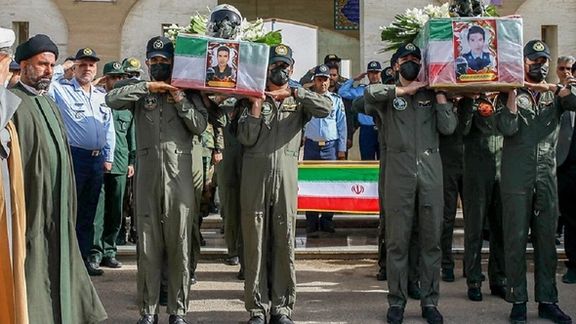
A veteran Iranian fighter jet pilot says sanctions on the country are the main reason for the high number of military aviation accidents and casualties among air force pilots.
Brigadier General Kioumars Heidarian, a retired pilot who underwent training in the US state of Texas and flew fighter jets for Iran’s air force both before and after the 1979 revolution, told ISNA on Saturday that if Iran could procure better aircraft equipment, it could reduce the number the accidents.
“Accidents happen everywhere, and no one in the world has managed to decrease the number of accidents to zero, but if the equipment is complete, it is natural that the number of accidents will be fewer,” he said.
The veteran pilot added that the situation would have been much better if new fighters replaced the current dilapidated fleet, noting that “parts are made both domestically and imported from countries such as Russia and China, but the main problem is international sanctions against our country.”
Last week, an F-7 fighter jet of the Iranian Air Force crashed near the central city of Esfahan, killing both of the aircraft’s pilots, and in February, two other pilots were killed when an Iranian F-5 fighter jet crashed into a soccer stadium in the northwest city of Tabriz.
In June 2021, two Air Force pilots were killed at Dezful air base in the southern province of Khuzestan due to the sudden glitch in their ejection seats while preparing the plane before the flight.
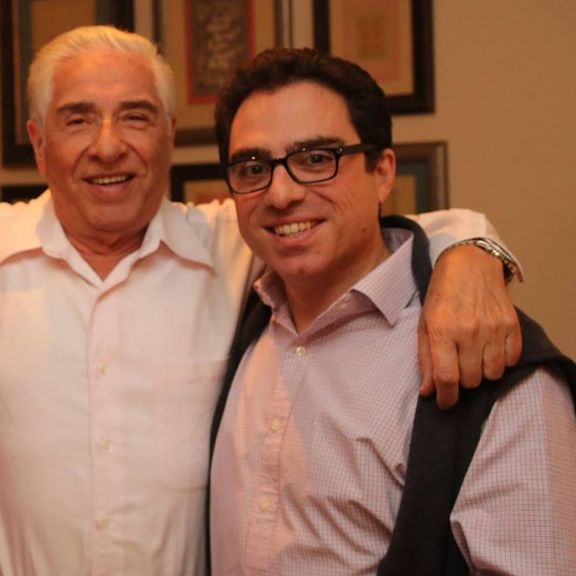
Jailed Iranian-American businessman Siamak Namazi has criticized the presence of Iran's foreign minister at Davos, saying his was convicted on charges of collaborating with the World Economic Forum.
In a letter to Foreign Minister Hossein Amir-Abdollahian on Saturday, the dual-national who has been imprisoned in Iran since 2015 asked how it is possible the Iranian diplomat attended the annual meeting in the Swiss resort while he was indicted for his cooperation with the forum.
"The Revolutionary Court sentenced me to 10 years in prison -- in concurrence with the opinion of security officers -- stating that the purpose of the World Economic Forum from the young international elites' visit to Iran was networking for social movements and overthrowing [the government], and also recognized that this Swiss assembly is considered to be the same as the hostile US government," the letter read.
He added, "If the ruling is correct, shouldn’t we ask what you were doing in Davos last week and why you attended the main conference of such a problematic institution?", and "If the court's interpretation is wrong, shouldn't we ask why I have been living in Evin [prison] for more than 2,400 days without any rights, such as a furlough.”
Siamak Namazi has been in prison since October 2015 on vague charges of collaboration with a foreign government. After Siamak’s arrest, his 84-year-old father, Bagher Namazi, a retired senior UNICEF official, traveled to Iran in 2016 to help him but he was also arrested and jailed in 2017 on vague accusations. Both are serving ten-year sentences.
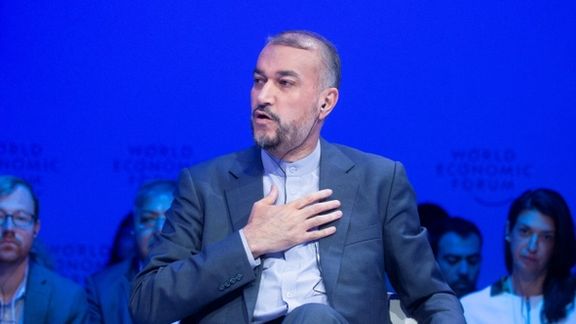
A website in Iran has noted that some remarks by Foreign Minister Hossein Amir-Abdollahian this week in Davos were not statements he would have made in Tehran.
In a commentary entitled "Double Standards," the Iranian Diplomacy website, asked whether the new rhetoric by Amir-Abdollahian about obstacles to the revival of the Iran nuclear deal, was tailored solely for listeners in the annual meeting in Davos or it was the outcome of his experiences as foreign minister during the past 9 months.
Amir-Abdollahian, during a conversation with journalist Farid Zakaria in the annual meeting of the World Economic Forum in Davos, Switzerland on May 26, said that hardliners in both Iran and the United States were working against the revival of the JCPOA. He particularly pointed out opposition by hardliners in the Iranian parliament (Majles).
According to Iran diplomacy, Amir-Abdollahian's statement about the Iranian parliament exerting pressure on the government to reject the JCPOA "could mean that the Iranian foreign Minister has two different views about the same issue." The website asked why he did not say the same thing to Iranian media.
However, neither Amir-Abdollahian nor Zakaria mentioned that hardliners are in control of Iran's negotiating team. Chief negotiator Ali Bagheri-Kani is known for his opposition to the JCPOA since the time he served in the team under ultraconservative negotiator Saeed Jalili in early 2010s. He continued to oppose an agreement with the United States until his appointment as chief negotiator by Iran's new government in 2021.
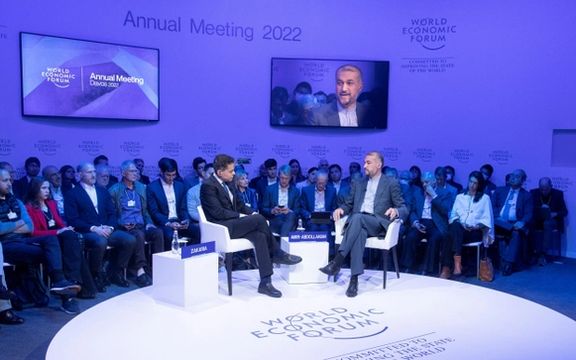
The Iranian foreign minister’s rhetoric about hardliners both in Iran and the United States was also not very different from his predecessor, Javad Zarif’s oft used line of argument, to show that his positions were moderate and those critical of Iran in the West were hardliners.
Meanwhile, the Iranian foreign minister for the first time "strongly condemned the war in Ukraine" without mentioning Russia's role. The Iran diplomacy wrote, "Undoubtedly, the foreign ministry is not courageous enough to make the same statement in Iran." The website also explained that the condemning the war in Ukraine could have been an indirect attack on Russia for its negative role in the talks and taking oil market share from Iran by selling its oil cheaper to China.
However, the website noted that although in many cases, Amir-Abdollahian's statements on Iran's foreign policy followed the party line, in some instances it appeared he got too close to Tehran's red lines.
Amir-Abdollahian, who spoke in Persian throughout the 35-minute conversation looked calmer and on top of the subject matter in most parts of the conversation, unlike his previous international appearances. He sounded like a very good speaker, at least in Persian. His points of weakness were revealed only when he answered questions on relations with Saudi Arabia, which later met with an indirect denial by his Saudi counterpart.
His accusation that the United States did not fight terrorism in Afghanistan and Syria were also not the highlight of this conversation as they were similar to Iranian officials' run-off-the-mill answers to such questions and were devoid of any insight.
Similarly, his statement that "We have intelligence the Zionists have taken US foreign policy hostage," was a repetition of Tehran's ragged argument about the issue throughout the past four decades.
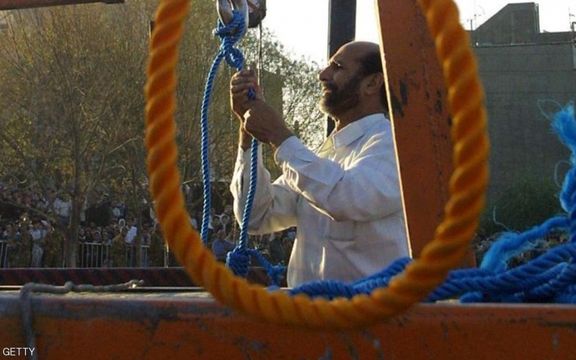
Amid a new wave of popular protests across Iran, the country’s judiciary has hanged at least 26 prisoners in various cities over the past 10 days.
Oslo-based Iran Human Rights reported the spike in executions on Friday, saying that the sudden increase, as several cities in the country are the scene of anti-government protests, shows that the Islamic Republic authorities use the death penalty as a means of creating fear in society.
According to data collected by the right group, at least 26 people, including two women, were executed from May 17 to 27 in 11 Iranian provinces. Seven of the executed men were Baluchi citizens -- an ethnic minority making up five percent of the population -- and were sentenced to death on "drug-related" charges.
Calling for the abolition of the death penalty, Iran Human Rights Director, Mahmoud Amiri-Moghaddam said, “While most of those executed were charged with crimes such as murder and drug offences, the authorities use the death penalty as a political tool. The executions are carried out with the aim of suppressing dissent.”
Earlier in the month, Amnesty International’s annual report on the worldwide use of the death penalty showed Iran as a country with a “disturbing spike” in executions.
The 66-page report, published Tuesday, found Iran executed at least 314 people in 2021, a 28 percent jump from at least 246 in 2020 and the highest figure since 2017. Amnesty said that in Iran “death sentences were disproportionately used against members of ethnic minorities.”